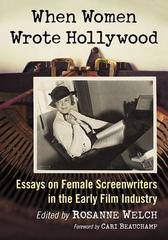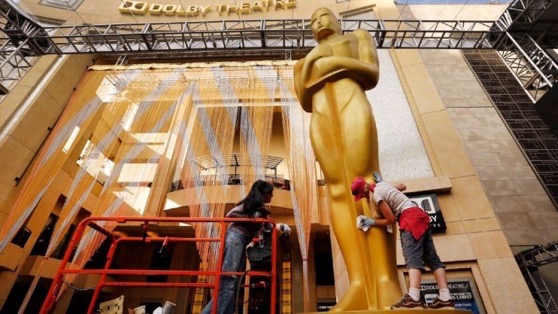While it was a pleasure to host the Screenwriting Research Network’s 2023 conference last week. I love reconnecting with all the folks we see annually in such wonderful places in the world (from Leeds to London to Dunedin to Milan). But the other great thing about this event was the chance to share the Stephens College campus in Columbia, Missouri with everyone. This article in the Columbia Tribune covered the conference’s opening night reception and interviewed some of our international guests so it gives you a lovely feel of who was there and why we gather annually:
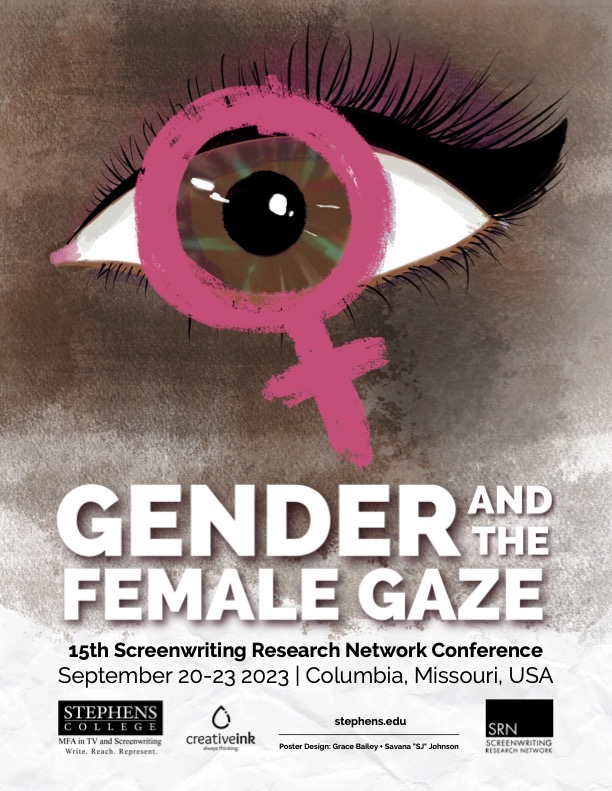 Screenwriters and academics converge on Stephens College for international conference
Screenwriters and academics converge on Stephens College for international conference
Screenwriters and screenwriting academics are gathering at Stephens College through Saturday for the Screenwriting Research Network Conference with the theme Gender and the Female Gaze.
A reception for conference participants was Wednesday night in the penthouse of the college library.
Participants are from at least 15 countries, said Roseanne Welch, executive director the Stephens’ Master of Fine Arts in TV and Screenwriting. Stephens College is a private women’s college in Columbia.
The female gaze refers to seeing life through women’s eyes, Welch said.
“We’re seeing that happen in all kinds of recent films, not just ‘Barbie'” Welch said.
Women’s stories were more complicated in the films of the 1930s and 1940s, she said.
“There were these complete stories with women anti-heroes,” Welch said.
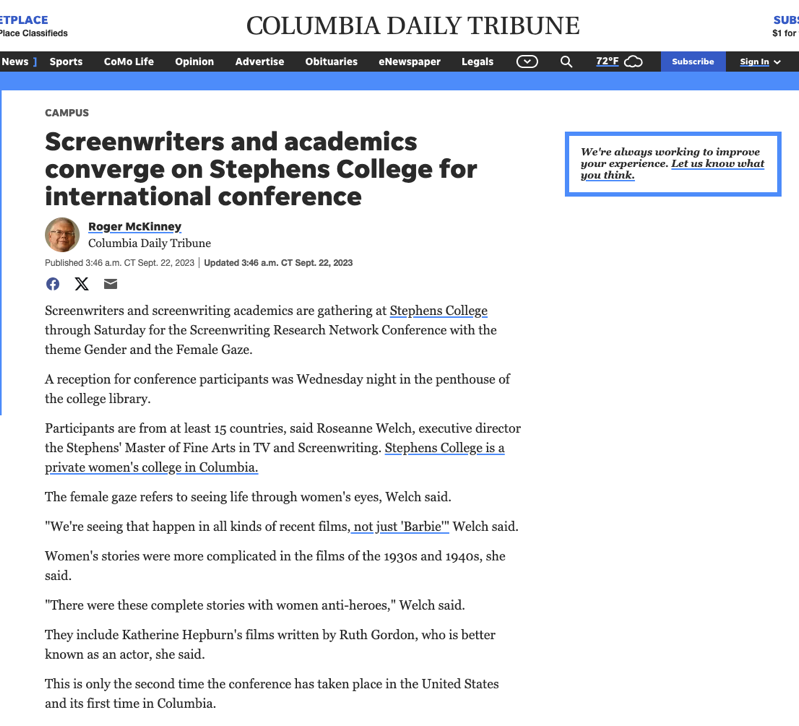
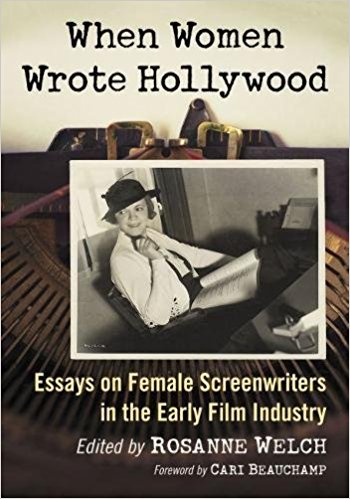

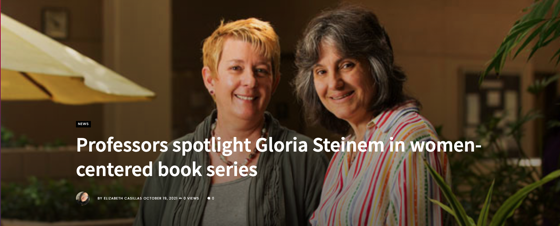






![Dr. Rosanne Welch Speaks On “An Introduction to the Women of Early TV: There are More Women than Lucy to Love“ for the American Women Writers National Museum [Virtual via Zoom]](https://rosannewelch.com/wp-content/uploads/2021/01/RMW-Rosanne-Signature-for-Web.png)


![New Book by IGE Lecturers Critique the Civil War in Films via PolyCentric [News]](https://rosannewelch.com/wp-content/uploads/2021/01/civil-war-film-cover.jpg)
![New Book by IGE Lecturers Critique the Civil War in Films via PolyCentric [News]](https://rosannewelch.com/wp-content/uploads/2021/01/Welch-and-Lamphier.jpg)

